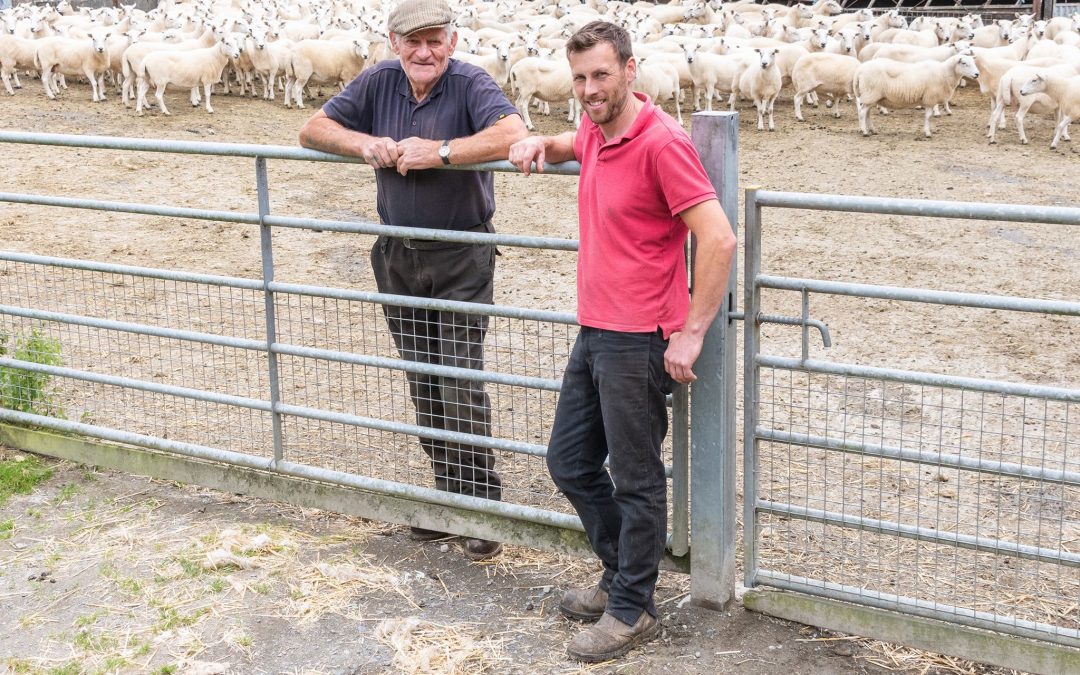Investing in performance-recorded rams has proven to be a game-changer for John Hopkins, who has successfully run Tregaron-type Welsh Mountains from the ProHill group with his Ceredigion-based flock for the past eight years.
John states that “While these rams can cost a bit more on average, I’ve found from experience they’re worth it; they’ve enabled us to improve our Tregaron type ewes whilst retaining their hardiness, length and tight wool fleece. We’re weaning their lambs two to three weeks earlier at four months of age and they’re going on to finish off pure forage diets 1kg heavier at an average 17.5kg from 16 weeks with the vast majority now in the R3L specification. Our aim is for most to be gone by Christmas”.
In the past, John spent substantial amounts on non-performance recorded rams, but these often proved to be disappointing, typically thriving for one season. Whereas, with the rams he as purchased from ProHill group members, they last at least four seasons and can be run in a 1:80 ram-to-ewe ratio.
“In fact, I believe we’re all to blame for buying what looks best on the day in the auction ring, when it’s the genetic performance potential that really counts together with the rearing system they’ve come from. ProHill group rams have not been overfed.”
John’s ram selection policy aligns perfectly with the low-cost system he has adopted at Ceunant, Pisgah, a 600-acre hill unit near Aberystwyth. He aims to improve his flock’s efficiency to maintain profitability, and one way he has achieved this is by maximising the weight of lambs from a forage-based diet. Introducing performance-recorded rams has been key to this process, enabling him to move from selling 15kg light lambs to finishing the entire crop without the need for creep feed.
While half the flock – the two and three shears are bred pure replacement purposes the remaining older ewes are crossed to the Aberdale or Aberfield and their ewe lambs sold to repeat buyers for breeding purposes.
He adds: “We believe we now have a ewe that’s one for the future; she’s of good size and conformation, fits our system and is enabling the flock to become more sustainable. In fact, we’re continuing to reduce our Beulah Speckled Face ewes and replace them with improved Tregaron-type Welsh Mountains.”
